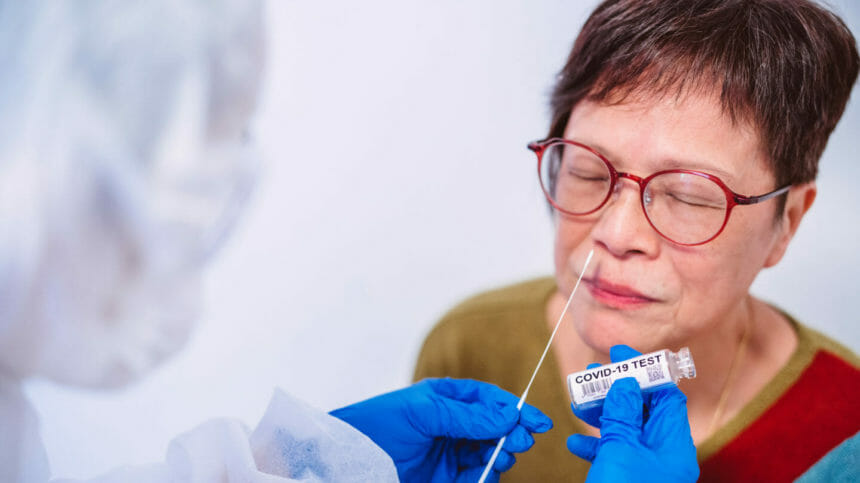
Nursing facilities in Nevada have been ordered to stop using COVID-19 rapid antigen tests provided by the federal government due to frequent diagnostic inaccuracies.
The Nevada Department of Health and Human Services issued the directive late last week following anecdotal reports of false positives. A small survey subsequently found that 60% of available specimens confirmed by more sensitive RT-PCR tests had indeed produced these results.
The directive specifically refers to the Quidel Sofia and Becton, Dickinson and Company’s (BD) Veritor rapid antigen tests. The sensitivity and specificity of these tests as reported by the manufacturers was “based on extremely limited data,” noted Chief Medical Officer Ihsan Azzam, M.D., Ph.D., and other state health officials.
These devices and an initial supply of tests were shipped to nursing homes nationwide starting in September by the U.S. Department of Health and Human Services to help ease COVID-19 testing compliance efforts. The Nevada directive does not mention Abbott’s BinaxNOW antigen devices that have been shipped more recently.
The Nevada DHHS provided a list of possible reasons for the antigen tests’ performance, such as:
- Lack of compliance with the manufacturer’s protocols
- Inadequate training on the testing procedure
- False negatives with the confirmation RT-PCR test, especially if the confirmatory PCR test could not be performed within 48 hours of the positive antigen test
- Low prevalence and incidence of COVID-19 within a community, which may result in higher rates of false positive tests
The department will issue formal updated guidance once more data is gathered and analyzed, it said.
In the meantime, industry advocate LeadingAge National said it’s “recommending that members continue using antigen tests, as instructed,” and is keeping abreast of the latest information.
“We know that our members should have access to some of those antigen tests to use to allow them to meet [Centers for Medicare & Medicaid Services] guidelines and as part of a comprehensive testing program,” Ruth Katz, LeadingAge’s senior vice president of policy, told McKnight’s Long-Term Care News on Thursday.
Antigen test benefits outweigh limitations, HHS contends
This is not the first time questions have arisen about antigen tests’ relative accuracy and use for COVID-19 detection in eldercare facilities.
Antigen tests are much less sensitive than laboratory-based PCR tests. In addition, the Quidel, BD and Abbott tests sent to the eldercare industry by HHS are being used off label under the Public Readiness and Emergency Preparedness, or PREP, ACT. They were originally intended for use in symptomatic people only, but are able to catch COVID-19-positive cases in asymptomatic individuals with high viral loads, according to HHS officials.
Federal officials made the decision to support antigen testing in the eldercare industry because the benefits during the pandemic far outweigh the limitations, said HHS Assistant Secretary Adm. Brett Giroir in a Monday call with LeadingAge. Cost savings (compared with PCR tests) and quick turnaround time (about 15 minutes compared with hours or days) allow the frequent, consistent testing needed to keep outbreaks from occurring in a congregate setting, he said.
Lab-based PCR tests cost more than $125 per test, and the federal government has calculated that they could cost nursing homes an extra $1 billion per month based on outbreak status, Giroir said. What’s more, if turnaround time on a PCR test is more than 48 hours, its sensitivity is less important, he added.




